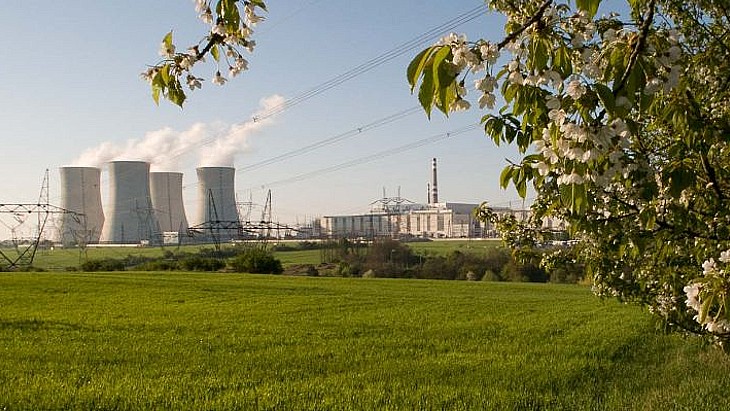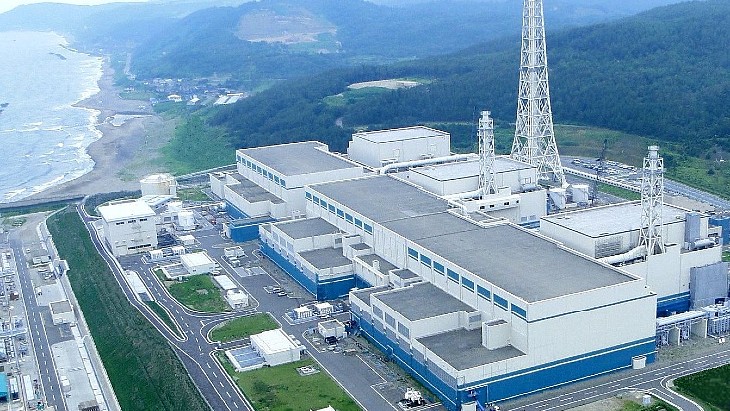"The global COVID-19 coronavirus pandemic is prompting dramatic actions from governments, placing significant restrictions on people and on business in order to save potentially millions of lives.
At this time more than ever we need to be able to rely on electricity supply. The huge efforts of medical staff worldwide depend on the ventilators, the monitors and all the other electrical equipment that is proving so vital to giving people the chance to recover from this disease.
With social distancing and remote working being imposed throughout the world, our ability to work, to collaborate and to stay in contact with friends and family is also dependent on those companies and their employees who are dealing with challenging circumstances to maintain a reliable supply of electricity.
Nuclear energy supplies 10.5% of the world's electricity, and is part of the generation mix of more than 30 countries that are home to more than two-thirds of the global population. Keeping the lights on involves many forms of generation, as well as the distribution networks that suppliers use to provide electricity to consumers. As ever, but particularly now, all those involved in generating and supplying electricity need to work together.
But I would like to pay particular tribute to the utilities, their workers and their suppliers who are keeping their reactors running during this public health crisis. Their work reminds us just how crucial nuclear energy is as a source of 24/7 electricity supply.
Nuclear power is reliable, high capacity-factor generation and plants only need refuelling every 12-18 months. It provides clean energy that is not governed by the variable availability of the sun or the wind, nor on maintaining a constant supply of coal or gas fuel.
As Fatih Birol, director general of the International Energy Agency recently remarked, nuclear power is "a crucial element in ensuring a secure electricity supply".
The nuclear industry, with its strong safety culture and well-established emergency preparedness protocols, has been able to respond swiftly to the disruptions created by the COVID-19 pandemic. Companies have implemented business continuity plans and prepared for the impacts of the response to the virus.
Plant operators are applying various measures to protect the health of their workers: enhanced hygiene procedures, staggered shifts and lunch breaks to enable social distancing are all being used to minimise the spread of the virus.
Companies have also introduced remote-working for staff to be able to carry out their duties from home. The number of personnel whose presence on-site is not essential to the on-going operation of the plant has been reduced, further limiting the potential of the virus to spread.
Nuclear companies and organisations are also involved in many other activities that are helping to beat COVID-19. In China, irradiation facilities were made available to the medical community to sterilise their equipment, not only from the coronavirus, but also other viruses and bacteria.
The International Atomic Energy Agency is providing diagnostic kits, equipment and training in nuclear-derived detection techniques to countries asking for assistance. The assistance, requested by 14 countries in Africa, Asia, Latin America and the Caribbean, is part of intensified global efforts to contain infections. And in Canada, Bruce Power is streamlining work on the project in place to extend the life of the Bruce nuclear plant to focus on providing reliable electricity for Ontario and maintaining the supply of cobalt-60 for medical sterilisation.
Our focus now is on the immediate threat of COVID-19, but we must not lose sight of the great need to continue the transition to a clean energy system, not only because of the huge impact of climate change on our global environment, but also because of the immediate harm caused by air pollution.
Not only will the clean energy transition save millions of lives that would otherwise be silently lost to air pollution each year, it will also deliver a more sustainable energy system that benefits us all; a system in which nuclear energy’s low-carbon, cost-competitive and reliable output will be vital.
I wish you, your loved ones and colleagues all the very best during this difficult time, and I can assure you that the nuclear energy industry has come together to help with the global effort to fight - and ultimately overcome - this disease."





_53514_33880.jpg)


_91467.jpg)



